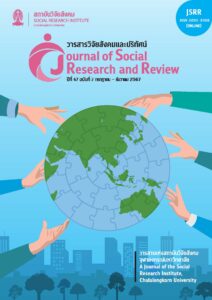24/10/2024
Under: Philippines, Publications, Reports, Thailand
บทคัดย่อ
Philippine politics has traditionally been shaped by dynastic interests and patron-client relationships. When the Marcos dictatorship was toppled in 1986, the country saw a succession of liberal democratic regimes. However, the Marcoses and Dutertes, two major dynasties, have undermined this democracy while maintaining dynastic politics and clientelism. As with any opportunistic alliance between elite families, the Marcos-Duterte pact was expected to dissolve quickly. This paper examines key developments that led to the unraveling of their alliance, highlighting how the competing political strategies they employed for their survival reflect the dynamics of dynastic, patronage, and clientelist politics. In addition to this prevailing view of Philippine politics, the paper examines the role of civil society in negotiating and contesting national politics, influenced by their collective historical experiences and a culture that emphasizes obedience and individual survival over collective welfare.
Furthermore, the study links the breakdown of the Marcos-Duterte alliance to geopolitical tensions between the US and China. The Philippines’ strategic location in the Pacific positions it as a crucial area of interest for both superpowers. While the Marcoses lean towards the US, the Dutertes favor China, thereby implicating their political survival in the escalating geopolitical tensions while also making Philippine politics a battleground for these competing influences. Ultimately, the dissolution of the Marcos-Duterte alliance raises important questions about the future of Philippine politics, emphasizing the need for ordinary Filipinos to reclaim and reshape their political landscape for a more inclusive future.
DOWNLOAD HERE
Source: tci-thaijo.org


![[IN PHOTOS] In Defense of Human Rights and Dignity Movement (iDEFEND) Mobilization on the fourth State of the Nation Address (SONA) of Ferdinand Marcos, Jr.](https://focusweb.org/wp-content/uploads/2025/07/1-150x150.jpg)



